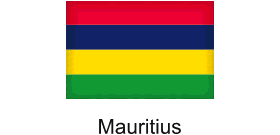 Mauritian Tourism version 2.0
Mauritian Tourism version 2.0
The Mauritian tourism industry showed signs of a crisis even before the current COVID situation. The growth of international air arrivals was starting to stagnate, and hotel groups were struggling to remain competitive.
Our current destination offering and positioning still rely on a winning formula developed in the 50s, its version 1.0: a beach-resort, retreat-like-experience, in an exotic and tropical ecosystem. As much as there is still demand for this product (although mainly from older generations), our leading competitors, Seychelles and Maldives, now have the edge on Mauritius. Their respective ecosystem is indeed much more exotic, less developed, than our country today, ultimately making that holiday-product a better one. In short, they have today the same edge we had in our early days of tourism.
Since those early days, life in the tropics of Mauritius has indeed changed a lot. The lifestyle of the average Mauritian does not revolve around fishing and sugar cane anymore. The economy grew and diversified, infrastructure drastically improved, and consumption skyrocketed. The landscape is simply not the same anymore.
Our unique selling points now seem to revolve around a well-connected and dynamic economy (relative to Africa and the region), a multicultural and diverse population, and undeniably still our tropical natural beauty. The question is, therefore, how to become competitive again as a destination? What edge do we have now, and how to transition effectively leveraging our current assets?
I propose in this article three avenues that may hopefully help unlock several other decades of prosperity for the industry.
New markets
At a global level, international tourist arrivals grew by more than 250% in just four decades. People travel more and more people travel. The market is more dynamic than ever, which represents tremendous opportunities in terms of new niches for Mauritius.
As much as we still have a few arguments for the "beach-resort, retreat-like-experience, in an exotic and tropical ecosystem," we have today more to offer.
We, however, need to avoid falling into the mass tourism trap, which is indeed not an option for us mainly because of our size. High end and quality segments (highest revenue per person) must, therefore, be favored.
Considering our updated unique selling points mentioned above, it seems we can already tap into the two following new markets:
Millennials, disrupting everything, are more active travellers compared to previous generations. They are in the search for unique and genuine experiences. They find great value immersing themselves deep into the local culture, its rites, food, and lifestyle. This market represents a whole generation, amounting already for 23% of international travel.
Digital nomads, in search of idyllic lifestyles for an optimal work-life balance, can work remotely from anywhere on the planet, relying only on a good internet connexion. They will undoubtedly appreciate spending a few months tasting the Mauritian quality of life before heading for another destination.
Holiday Rentals and the informal sector
Until the recent arrival of Airbnb, we successfully managed to keep visitors in the resorts and on the coasts. Until then, it hasn't been a problem as it worked for everyone. However, led by Millennials again, more and more travelers now want to experience the country from the inside, meet its people and have more immersive, independent experiences.
Without any surprise, according to AHRIM, this market grew steadily to around 40% of the tourists now staying outside hotels. Yet, data and offering on this market is so far very opaque and is classified as a whole under the informal sector.
It is time to formalise this sector. It needs to be understood, structured, incentivised, and effectively included in our destination offering, making the most out of its opportunities and reducing the potential risks.
The opportunities of this more inclusive tourism go beyond the direct interests of the holidaymaker and present a potential boost for the local economy, but also the real estate sector.
The Holiday Rental offering, of course, needs to be optimised for quality over quantity. There are several examples of the potential of that market in terms of qualitative accommodation offering on Airbnb.
Rethinking resorts
To remain competitive in this more dynamic market, our resort hotels will have to restructure to capitalise on their brand and tangible assets.
The ultimate local resort performance KPI today seems to be a hotel one, the RevPAR, which is the Total Revenue Per Available Room. The problem in that approach is that it reduces the resort to a room provider when, in reality, it has way more assets like restaurants, bars, gym, beach, pool, or spa. It seems there has to be a paradigm shift in resort management to diversify revenue streams and capitalise on each asset individually. This approach will be more sustainable and less risky, especially since more travellers are looking for private holiday rentals.
From there, with a strong brand, events, and effective crowd management, resorts will welcome curated clients both from within and outside its premises to enjoy the different facilities, all while maximising revenue.
To conclude
The current situation seems to be more of a blessing in disguise than a fatality. It is the opportunity to take an unprecedented step back, to re-assess everything, correct and improve to come back stronger than ever.
Considering the above and without forgetting significant trends like sustainability and digitalisation, let us all stakeholders, at our individual and national level, take the opportunity to build an effective recovery plan for our beloved tourism industry. Let's work for a more inclusive offering, an effective repositioning, version 2.0 of our product that will enable for several more decades of success for the country.
